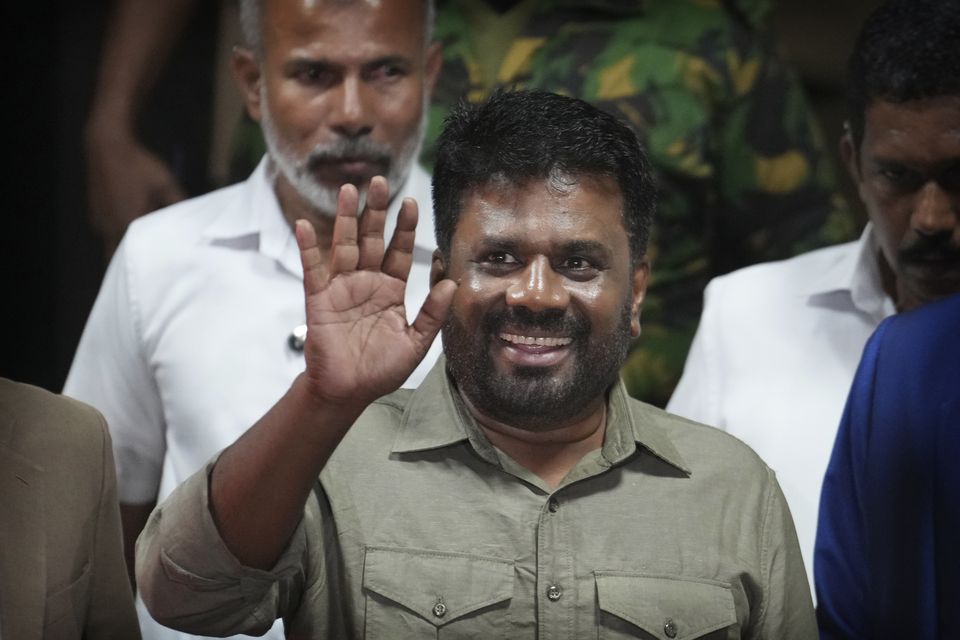Marxist leader Anura Kumara Dissanayake was sworn in as Sri Lanka’s 10th president on Monday after an election that saw voters reject an old guard accused of leading the country into economic crisis.
Mr Dissanayake, 55, who ran as head of the Marxist-leaning National People’s Power coalition, defeated opposition leader Sajith Premadasa and 36 other candidates in Saturday’s election.
Mr Dissanayake received 5,740,179 votes, followed by Mr Premadasa with 4,530,902.
Mr Dissanayake waves as he leaves from the election commission office after winning Sri Lankan presidential election (Rajesh Kumar Singh/AP)
The election held on Saturday was crucial as the country seeks to recover from its worst economic crisis and resulting political upheaval.
He is the ninth person to hold Sri Lanka’s powerful executive presidency, created in 1978 when a new constitution expanded the office’s powers.
Mr Dissanayake’s coalition is led by the Janatha Vimukthi Peramuna (JVP), or People’s Liberation Front, a Marxist party that waged two unsuccessful armed insurrections in the 1970s and 1980s to capture power through socialist revolution.
Mr Dissanayake was first elected to parliament in 2000 and briefly held the portfolio of agriculture and irrigation minister under then-president Chandrika Kumaratunga.
He ran for president for the first time in 2019 and lost to Mahinda Rajapaksa, who was ousted over the economic crisis two years later.
That economic crisis resulted from excessive borrowing to fund projects that did not generate revenue, the impact of the Covid-19 pandemic, and the government’s insistence on using scarce foreign reserves to prop up its currency, the rupee.
